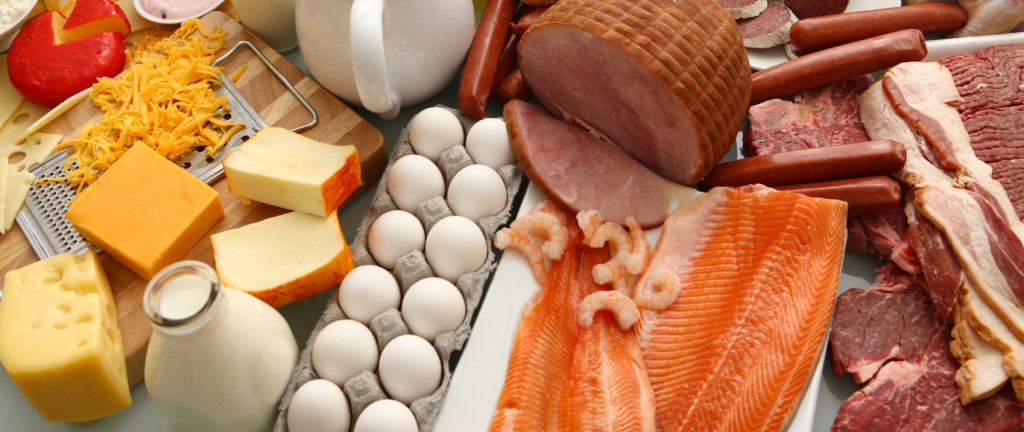
Do High-Protein Diets Increase Cancer Risk?
A new study has found that middle-aged people consuming large amounts of animal protein in their diet seemed to experience significantly higher incidences of cancer and diabetes. The study looked at high-protein diets and their effect on health, splitting the research subjects into different age groups, those aged 50-65 and 65 or older. Researchers also investigated whether there was a difference in the type of protein being consumed, animal or plant, and the effect this had on health and mortality rates. The study produced some surprising findings.
Is it Time to Rethink High-Protein Diets?
As part of the study, researchers looked at data from 6,381 American men and women, aged 50 or older. One group, the high-protein group, received 20% or more of their daily calories from protein, the moderate-protein group received 10% to 19% of their daily calories from protein, and the low-protein group received less than 10%.
Participants in the 50-65 group consuming a high-protein diet, were found to have a 74% increase in mortality compared to those participants following the low-protein diet. Participants in the high-protein group died from cancer more frequently than the other participants in the study and had an increased risk of developing diabetes. Conversely, when researchers looked at the type of protein the participants were predominantly consuming, they found that plant-derived proteins were associated with lower mortality than animal-derived proteins, although participants consuming mainly plant proteins still experienced an increased cancer risk compared to those on a low-protein diet.
In the past, scientists have looked at Insulin-like growth factor 1(IGF-1), a protein found in our bodies, and the effect it has on our health. Past studies have found a link between high levels of IGF-1 and the incidence of age-related diseases such as cancer. Protein intake is thought to influence the levels of IGF-1 in our bodies, which may account for the findings from this study.
The study also looked at the effects of a high-protein diet on participants aged 65 or older and found that for participants in this age group, eating a high-protein diet created the opposite effect. There was a 28% reduction in death from all causes in this group. This could be due to the fact our levels of IGF-1 decline as we age and may suggest over 65s should be increasing their protein intake.
Criticisms of the Study
Critics of the study say that it’s difficult to determine what causes spikes in cancer rates and mortality when looking at diet, because of the complexities involved. They say it’s impossible to determine which dietary component or nutrient is having a negative effect on the body, especially when using self-reported information. People may be over or underestimating their protein intake when talking to their physician or answering a survey. The study also failed to distinguish between different types of animal protein, whether the animal protein was derived from red meat, white meat, fish, dairy, or eggs. Other considerations such as participants existing medical conditions weren’t considered as part of the study, which may also have affected the results.
Suggestions for a Healthy Diet
It’s clear that more research needs to be conducted into this subject, but most people in the United States eat more protein than they need. The CDC recommends that a man aged 19-70 or older, should consume 56 grams of protein each day, and a woman aged 19-70 or older, should consume 46 grams of protein daily. When choosing protein-rich foods, aim for lean white meats such as chicken, plant proteins such as beans and lentils, or fish such as salmon or tilapia. Try to limit or eliminate processed meats from your diet and eat red meat only in moderation.
Sources:
http://thechart.blogs.cnn.com/2014/03/05/middle-aged-put-down-the-meat/?hpt=he_t2 – Middle-aged? Put down the meat. CNN Health.
http://www.theguardian.com/science/2014/mar/04/animal-protein-diets-smoking-meat-eggs-dairy – Diets high in meat, eggs and dairy could be as harmful to health as smoking. The Guardian.
http://www.forbes.com/sites/alicegwalton/2014/03/04/the-protein-puzzle-meat-and-dairy-may-significantly-increase-cancer-risk/ – Why High-Protein Diets May Be Linked to Cancer Risk. Forbes.
http://www.cdc.gov/nutrition/everyone/basics/protein.html – Protein. Centers for Disease Control and Prevention.
About SignatureMD
SignatureMD is one of the nation’s largest firms providing initial conversion and ongoing support services to concierge medicine physicians. SignatureMD currently partners with over 200 affiliated primary care physicians and specialists across 35 states, and its network is rapidly expanding.